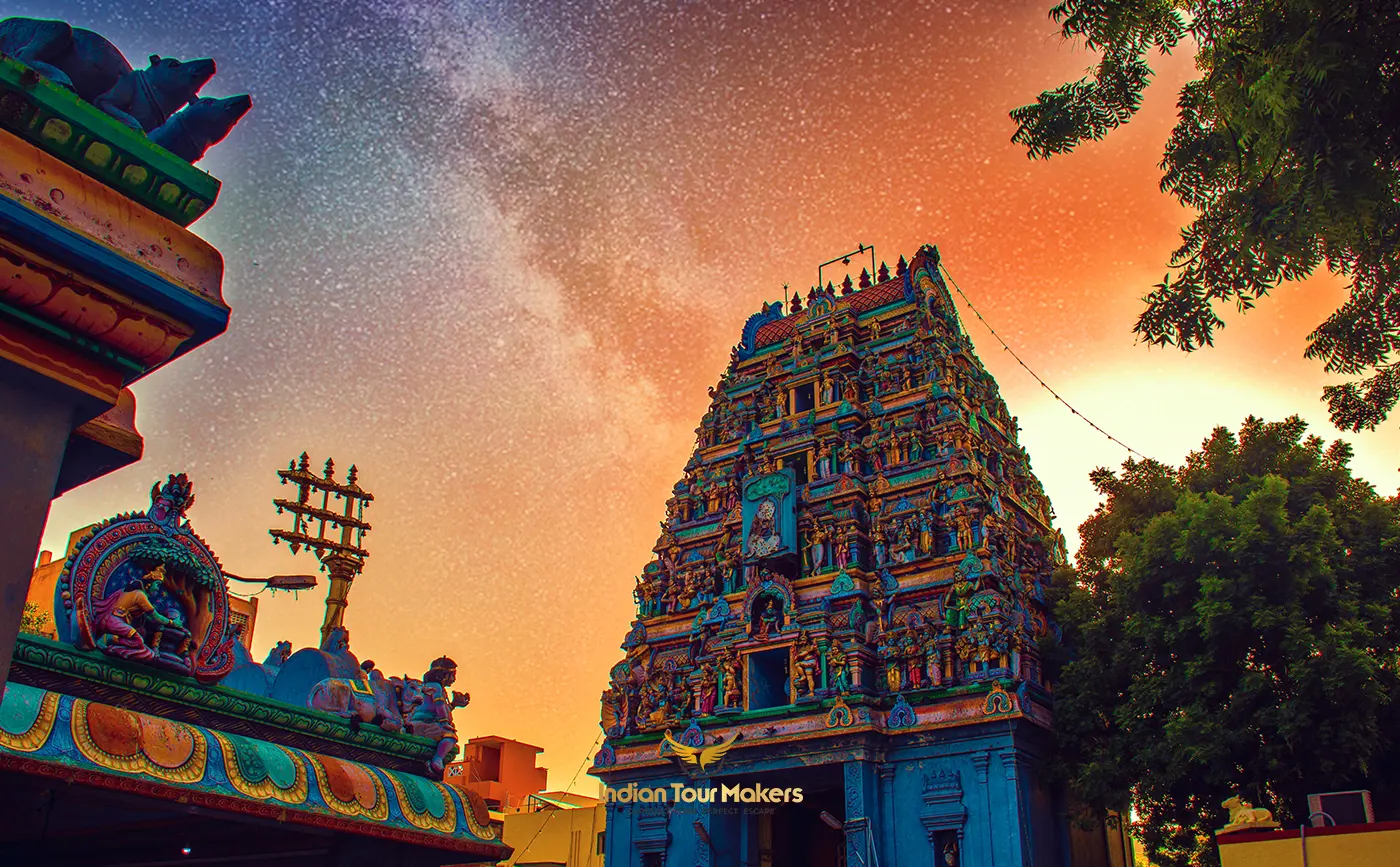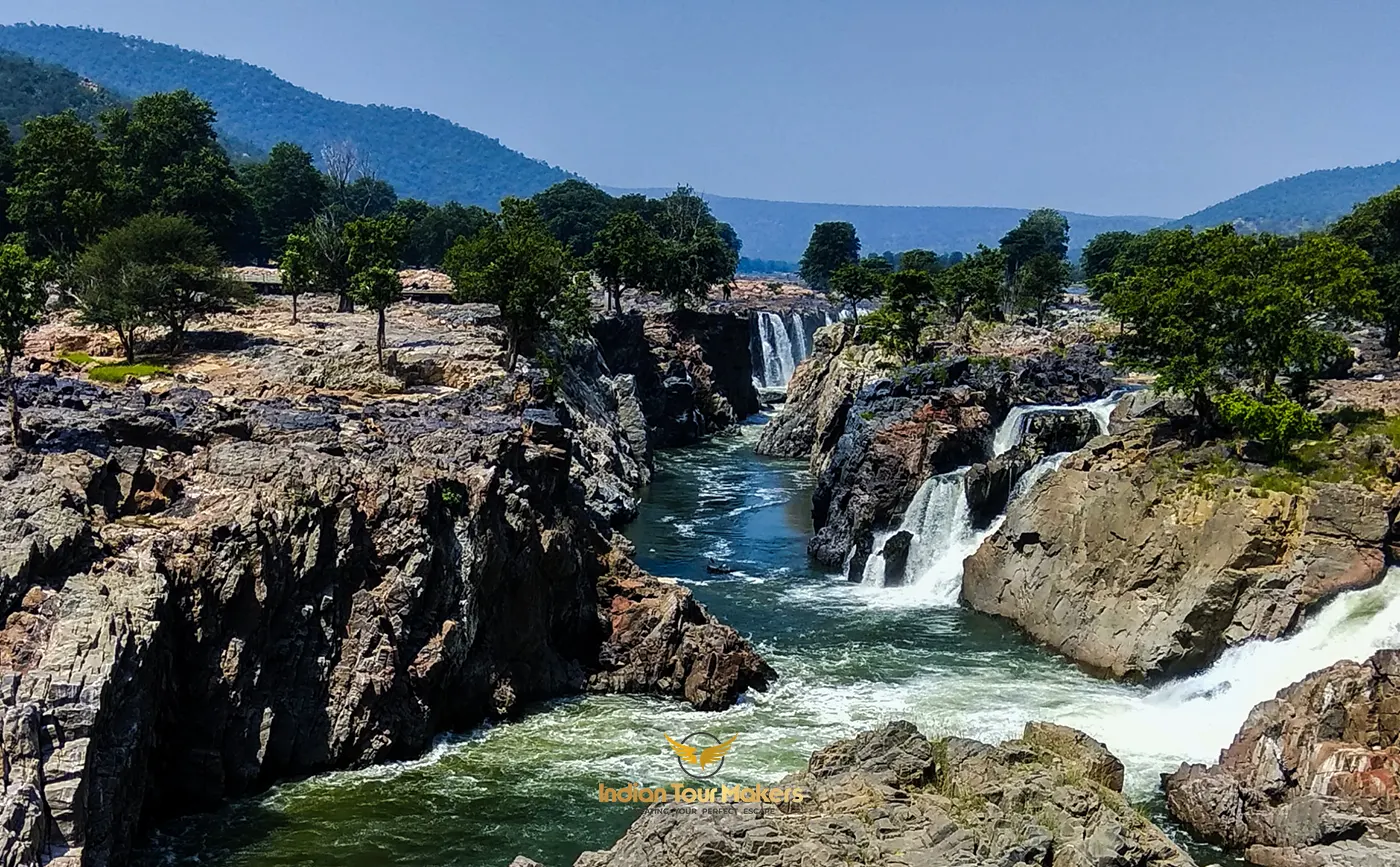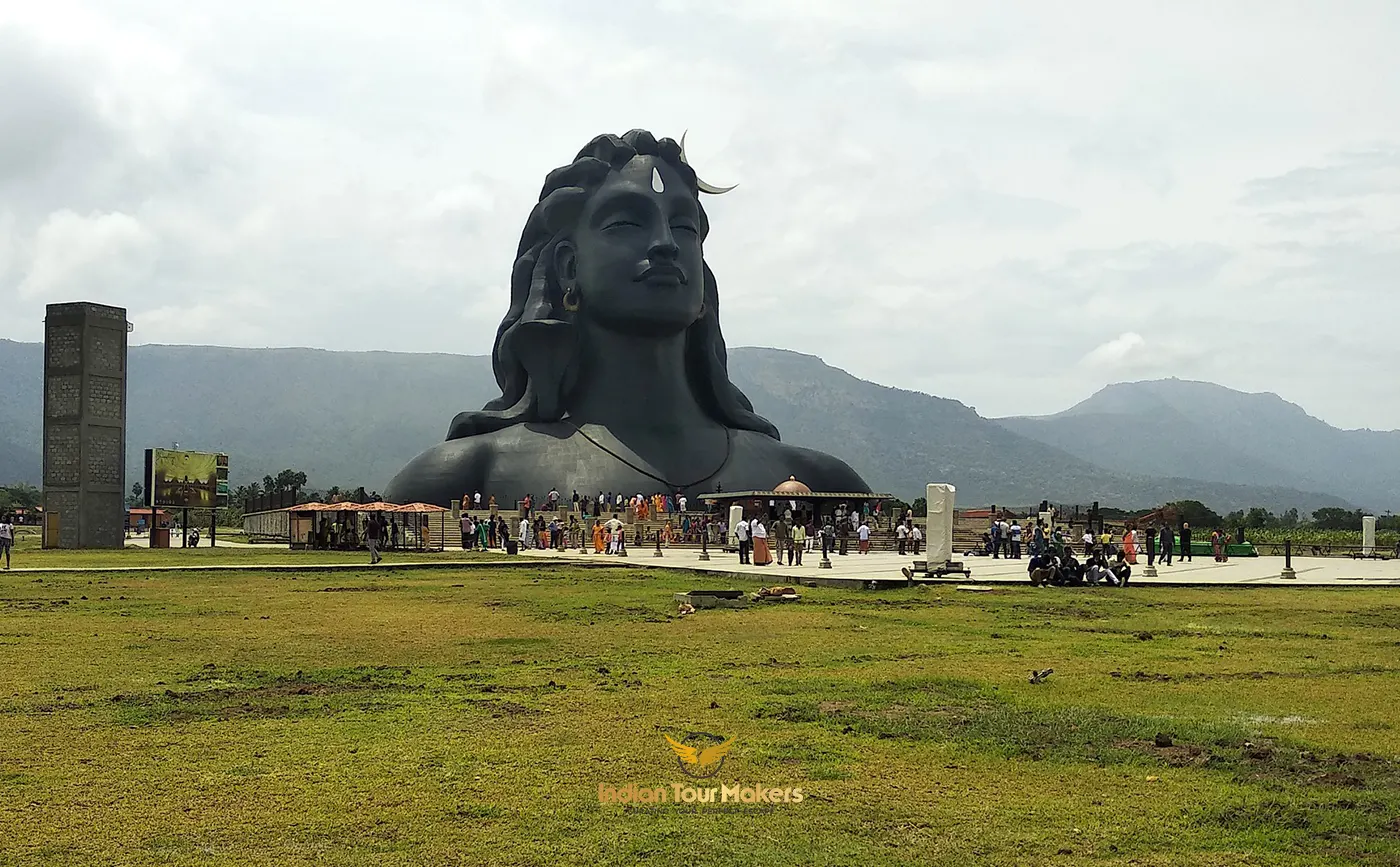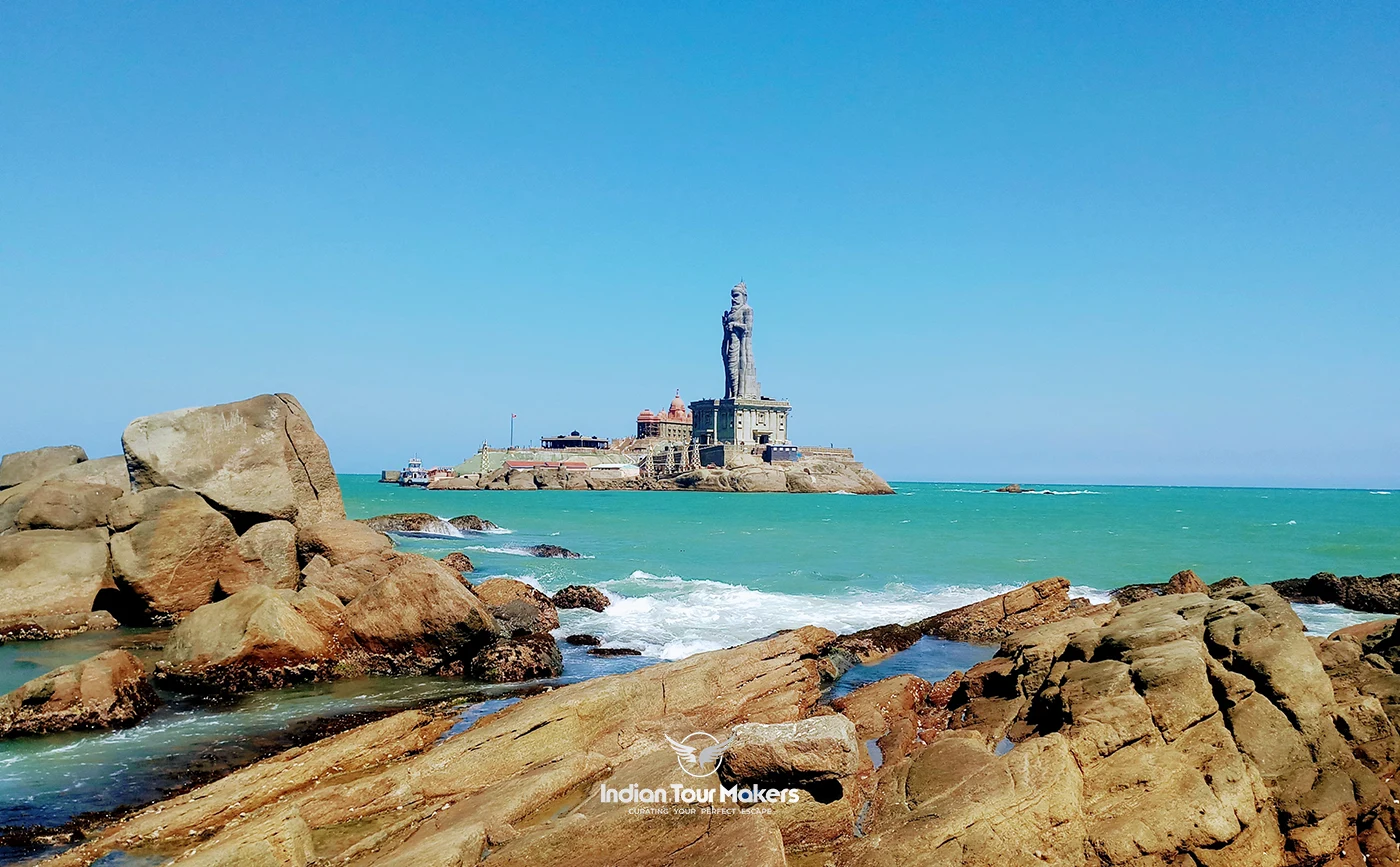










Welcome to Tamil Nadu, a land where history whispers from ancient temples and nature sings through lush landscapes. Picture yourself strolling through the colorful streets of Chennai, feeling the warmth of the sun and the buzz of vibrant city life. Envision the serene beauty of Ooty’s rolling hills, where the cool breeze carries the scent of tea leaves.
Imagine standing in the shadows of towering gopurams at Madurai’s Meenakshi Temple, their intricate carvings telling tales of gods and legends. Feel the sand between your toes on the tranquil beaches of Mahabalipuram, as the waves gently kiss the shore.
In the heart of Tamil Nadu, the aroma of spicy Chettinad cuisine invites you to indulge in a culinary adventure. The sounds of classical Carnatic music and the sight of Bharatanatyam dancers in colorful costumes bring the rich culture to life.
As night falls, the stars light up the sky over the tranquil countryside, offering a moment of peace and reflection. Tamil Nadu is not just a destination; it’s an experience that stays with you, a journey through a land of beauty, tradition, and enchantment. Welcome, and let your Tamil Nadu adventure begin.
Tamil Nadu: A Tapestry of Time
Ancient Beginnings:
Medieval Majesty:
Chola Dynasty (9th – 13th Century): A golden age for art, architecture, and trade.
Pallavas & Pandyas: Significant contributions to Tamil Nadu’s rich architectural and cultural heritage.
Colonial Crossroads:
16th Century Onwards: Arrival of European powers like the Portuguese, Dutch, British, and French.
British Rule: Integration into the Madras Presidency.
Struggle for Freedom:
Modern Era:
Tamil Nadu’s history is a vivid mosaic, showcasing resilience, artistic brilliance, and a deep-rooted cultural identity.
Location:
Languages Spoken:
Climate:
Best Known For:
Popular Festivals:
Tourist Attractions:
Local Cuisine:
October to March: Ideal Season
April to June: Summer Months:
July to September: Monsoon:
Travel Tips:
Note: Always check the weather forecast and local advisories before planning your trip.
By Air:
By Train:
By Road:
By Sea:
Local Transport:
Travel Tip: Always plan your journey in advance, especially during peak tourist seasons and festivals, to ensure availability and the best rates.

Subscribe to see secret deals prices drop the moment you sign up!

